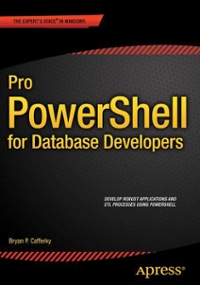Question
using c++ Could you please implement these functions for me that are found in the .h file The question is: DynamicArray This class encapsulates a
using c++
Could you please implement these functions for me that are found in the .h file
The question is:
DynamicArray This class encapsulates a dynamic array. The array grows as more space is needed. See dynamicArray.h for details.
#ifndef DYNAMICARRAY_H
#define DYNAMICARRAY_H
#include "linearStructure.h"
template
class DynamicArray;
template
ostream& operator<<(ostream&,DynamicArray&);
/*
Dynamic array.
*/
template
class DynamicArray : public LinearStructure
{
public:
/*The overloaded stream operator for the DynamicArray class. If
an array object is printed that contains the elements a,c,b and m,
with element 'a' at index 0 and element 'm' at index 3 (first to last),
the output MUST be in the following format:
[a,c,b,m]
with no white space or new lines.
It is possible that some of the elements might be null. If this is the
case then the null elements should be indicated with asterisks.
If the array contains the elements a and m,
with element 'a' at index 0 and element 'm' at index 3 (first to last),
the output MUST be in the following format:
[a,*,*,m]
NOTE: if all elements are null, output asterisks. If the array is of size 4,
but containts no elements yet, the output MUST be in the following format:
[*,*,*,*]
*/
friend ostream& operator<< (ostream&,DynamicArray&);
/*
The constructor accepts the initial size of the array.
All elements in the array are initialized to null.
If a size <= 0 is provided, throw an exception message "Invalid size provided"
*/
DynamicArray(int s);
/*
The copy constructor.
*/
DynamicArray(const DynamicArray& other);
/*
The overloaded assignment operator.
*/
DynamicArray& operator=(const DynamicArray& other);
/*
Creates a dynamically allocated deep copy of the object and returns
a pointer to it
*/
virtual DynamicArray* clone();
/*
The destructor.
*/
virtual ~DynamicArray();
/*
Inserts an element at the given index in the array. If
the index is larger than the size of the array, grow
the array to accomodate the index.
Any index >= 0 is valid. For an invalid index, throw an exception message "invalid index".
NOTE: a value can only be inserted at a given index if the
given index does not store a value yet. If the index position
is occupied, all elements from the given index onwards
are shifted one position forward to free the requested position.
Eg: Array object stores [a,c,b,m]. A request is made to insert 'j'
at location '1'. Currently, 'c' is stored there. All elements are shifted
forward: [a,*,c,b,m], and 'j' is put in the now open position '1':
[a,j,c,b,m]. Note that the array had to be resized to accomodate the insertion.
*/
virtual void insert(int index, T element);
/*
Removes and returns the element at the index passed in
as a parameter. All elements from the removed index onwards
are shifted one position backward. Array is not resized. If an element is null,
throw the string "No element found".
*/
virtual T remove(int index);
/*
Returns the element at the index passed in as a parameter.
The element is not removed from the data structure. If an element
is null, throw the string "No element found".
*/
virtual T get(int index) const;
/*
Returns the first non-null element in the structure.
If all elements are null, throw the string "No element found".
*/
virtual const T& getFirst() const;
/*
Returns the last non-null element in the structure.
If all elements are null, throw the string "No element found".
*/
virtual const T& getLast() const;
/*
Returns the index of the first non-null element in the structure.
If all elements are null, throw the string "No element found".
*/
virtual int getIndexFirst() const;
/*
Returns the index of the last non-null element in the structure.
If all elements are null, throw the string "No element found".
*/
virtual int getIndexLast() const;
/*
Returns true if the array contains no elements and
false otherwise.
*/
virtual bool isEmpty();
/*
Removes all of the elements from the array. After this function has
been called on a DynamicArray object, the the array must be empty
(i.e. all elements in the array must be null). The array's current
size remains unchanged.
*/
virtual void clear();
/*
Removes empty spaces between elements by moving all elements to the front.
For example, suppose the following array is given: [*,2,3,*,*,*,0]
After invoking shiftToFront(), all non-null elements should be moved to
the front of the array as follows: [2,3,0,*,*,*,*]
The array's current size must remain unchanged.
The order of the elements must remain unchanged.
*/
void shiftToFront();
protected:
ostream& print(ostream& os);
private:
/*
Use this function to resize the array.
*/
void resize(int newSize); // will not be tested by Fitchfork, but will be useful to you!
/*
An array of pointers to objects of type T.
The elements should be stored in this array.
*/
T ** elements;
/*
The current size of the array. It should be initialized
appropriately in the constructor.
*/
int size;
/*
The number of elements currently contained in the array.
*/
int numElements;
};
#include "dynamicArray.cpp"
#endif
Step by Step Solution
There are 3 Steps involved in it
Step: 1

Get Instant Access to Expert-Tailored Solutions
See step-by-step solutions with expert insights and AI powered tools for academic success
Step: 2

Step: 3

Ace Your Homework with AI
Get the answers you need in no time with our AI-driven, step-by-step assistance
Get Started


